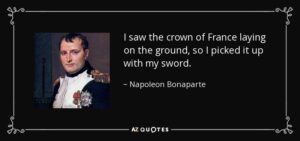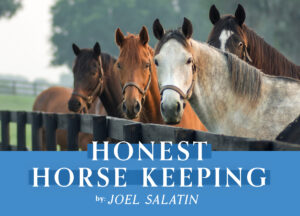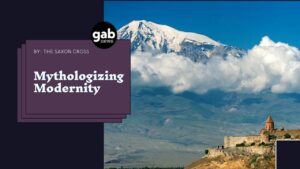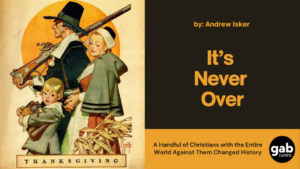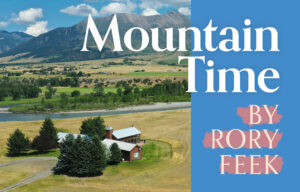by ThinkingWest
The most challenging period in which to select the great books of Christianity is the modern era. The sheer volume of Christian literature produced in the last two centuries makes extracting out “the best” a difficult task. Moreover, books written closer to the present have not yet been sorted by the harshest critic of all: Time. Nonetheless, we have selected these works due to their great influence on modern, faithful Christians. So let’s explore the greatest works of the modern era, years 1800-present.
This article is the final installment of a four-part series on the Great Books of Christianity. If you missed the previous ones, click here.
Published on thinkingwest.com on April 3, 2023.
The Way of a Pilgrim (19th Century, Anonymous)
The Way of a Pilgrim is a 19th Century Russian work written by an unknown mendicant pilgrim. The author takes Paul’s guidance in 1 Thessalonians 5:17 (“pray without ceasing”) to heart and sets out on a mission to attain a life of ceaseless prayer for himself. He visits various monasteries and churches until he encounters a spiritual father that teaches him the “Jesus Prayer” and guidance on how to implement the prayer in daily life. The work is widely read today, and the Jesus Prayer remains one of the most recited prayers in the Christian world.*

“The ceaseless Jesus Prayer is a continuous, uninterrupted call on the holy name of Jesus Christ with the lips, mind, and heart…in all places, at all times, even in sleep. The words of the Prayer are: ‘Lord Jesus Christ, have mercy on me.”
Anonymous, The Way of a Pilgrim
*Note: The Jesus Prayer may come close to the Lord’s Prayer and the Hail Mary in terms of sheer recitations because it is often uttered dozens or even hundreds of times throughout the day by an adherent. It is a meditative prayer that is often synchronized with one’s breath: “Lord Jesus Christ, Son of God (breathing in),“Have mercy on me, a sinner.” (breathing out).
Story of a Soul (1897, Thérèse of Lisieux)
The French Carmelite nun Thérèse of Lisieux, hailed as the “greatest saint of modern times” by Pope Pius X, wrote Story of a Soul shortly before her premature death in 1897. An autobiography of her life comprising three separate manuscripts, the work was originally sent out to other nuns in request of prayers in wake of Thérèse’s death. However, the work soon gained popularity outside of religious orders and became very popular after Thérèse’s canonization.

“I know now that true charity consists in bearing all our neighbors’ defects – not being surprised at their weakness, but edified at their smallest virtues.”
St. Therese of Lisieux, Story of a Soul
Orthodoxy (1908, G.K. Chesterton)
A classic of Christian apologetics, Orthodoxy was written in response to criticism of a previous work of Chesterton’s, Heretics, in which the English writer offered critiques of popular philosophies, but no real solutions or philosophy of his own. True to form, the work is witty, paradoxical, and thought-provoking. Chesterton presents Christianity as the “answer to a riddle,” a solution to humanity’s most fundamental needs. Orthodoxy manages to capture a large audience by focusing on the Apostle’s Creed, making it widely appealing to Chrsitian’s of all denominations.

“Tradition means giving votes to the most obscure of all classes, our ancestors. It is the democracy of the dead. Tradition refuses to submit to the small and arrogant oligarchy of those who merely happen to be walking about.”
G.K. Chesterton, Orthodoxy
My Utmost for His Highest (1935, Oswald Chambers)
My Utmost for His Highest is one of the most popular daily devotionals of all time. The Baptist minister’s wife compiled the work from her notes taken during Chambers’ sermons to students and soldiers during WWII. The book is broken into 366 sections, roughly one per day, and focuses on prayer intentions and how one should practically live out the Christian life. The work was published after Chambers’ death and has remained in print since its first publication. It has been translated into nearly 40 languages.

“Have you been asking God what He is going to do? He will never tell you. God does not tell you what He is going to do; He reveals to you Who He is.”
Oswald Chambers, My Utmost for His Highest
The Cost of Discipleship (1937, Dietrich Bonhoeffer)
Written by influential Lutheran pastor and outspoken Nazi dissident Dietrich Bonhoeffer, The Cost of Discipleship is considered a Christian classic. Centered around Christ’s teachings in the Sermon on the Mount, the book makes a distinction between what Bonhoeffer calls “cheap” grace versus “costly” grace. Bonhoeffer claims that cheap grace is the “grace we bestow on ourselves…forgiveness without requiring repentance, communion without confession…grace without discipleship” while costly grace is the call to follow Jesus, compelling one to submit to Christ. Bonhoeffer argues that the secularization of the Church helped the institution grow rapidly while also cheapening Christ’s original message to conform to the world.

“When Christ calls a man, he bids him come and die.”
Deitrich Bonhoeffer, The Cost of Discipleship
The Seven Story Mountain (1948, Thomas Merton)
An autobiography detailing Merton’s conversion and initial years as a trappist monk, The Seven Story Mountain resonated with audiences of the mid 20th century in a way few religious works have before or since. First published in 1948, the book sold over 3 million copies over the next four decades and earned its way into National Review‘s “100 Best Non-Fiction Books of the Century.” Fulton Sheen described the work as “a twentieth-century form of The Confessions of St. Augustine.” The book was extremely popular as a recruitment tool for priests and monastic orders, with some experiencing a boost in enrollees shortly after its publishing.

“The logic of worldly success rests on a fallacy: the strange error that our perfection depends on the thoughts and opinions and applause of other men! A weird life it is, indeed, to be living always in somebody else’s imagination, as if that were the only place in which one could at last become real!”
Thomas Merton, The Seven Storey Mountain
Mere Christianity (1952, C.S. Lewis)
Spend enough time in nearly any Christian social circle and C.S. Lewis’s classic work, Mere Christianity, is bound to be brought up. That’s exactly the point, though, since Lewis wrote the book in an attempt to write a unifying, stripped-down presentation of Christianity comprising the beliefs that all denominations could agree upon in order to appeal to non-believers. The work builds a case for, as well as refutes objections against, the Christian faith. One of Lewis’s most popular arguments, commonly known as “Lewis’s Trilemma”, is presented in the work. The argument claims that Jesus was either a liar, a lunatic, or the Lord: “Christ either deceived mankind by conscious fraud, or He was Himself deluded and self-deceived, or He was Divine. There is no getting out of this trilemma. It is inexorable.” Mere Christianity is one of the best-selling apologetic works of all time and has been translated into thirty-six languages. It has been used as an apologetical tool in diverse corners of the world, from Orthodox Christians in the former Soviet union hoping to regain their influence, to Chinese converts learning about the faith for the first time, to Catholics and Evangelicals in the Western world looking to sharpen their apologetical chops against religious skeptics.

“If I find in myself desires which nothing in this world can satisfy, the only logical explanation is that I was made for another world.”
C.S. Lewis, Mere Christianity
God’s Revelation to the Human Heart (1981, Seraphim Rose)
God’s Revelation to the Human Heart was originally a lecture given by Seraphim Rose, perhaps the most influential Orthodox monk of the 20th century, at the University of California in 1981. The lecture was then transcribed and put to paper, where it continues to inspire Christians today. In the work, Rose draws upon scripture, early church fathers, and accounts of saints to draw readers to the essence of Christian life. The hieromonk posits that the core of Christianity is the conversion of man’s heart, a transformation that will eventually ripple into all aspects of his life.

“Why is the truth, it would seem, revealed to some and not to others? Is there a special organ for receiving revelation from God? Yes, though usually we close it and do not let it open up: God’s revelation is given to something called a loving heart.”
Seraphim Rose, God’s Revelation to the Human Heart
Final Thoughts
This wraps up our list of the Great Books of Christianity. To see the complete list, check out our page here. This list can serve as a launching point to deepen one’s faith or to get a better understanding of what Christians of past generations believed.
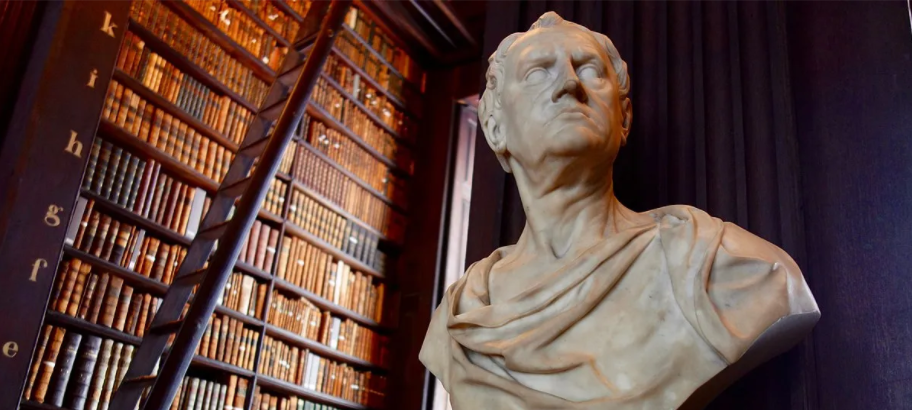
Thinking West aims to revive the “Great Conversation” in our digital age through promoting the study of the great books of the western world, classical approaches to education, and through thoughtful commentary on current events, history, philosophy, culture, education, and religion.
We strive first and foremost to spark an appreciation for the values that built the West. Our content strives for depth and meaning in an era plagued by six second attention spans and clickbait headlines. We challenge ourselves and our readers to read, reflect, and speak out on ideas that matter.
Find us online at:
thinkingwest
and
YouTube






